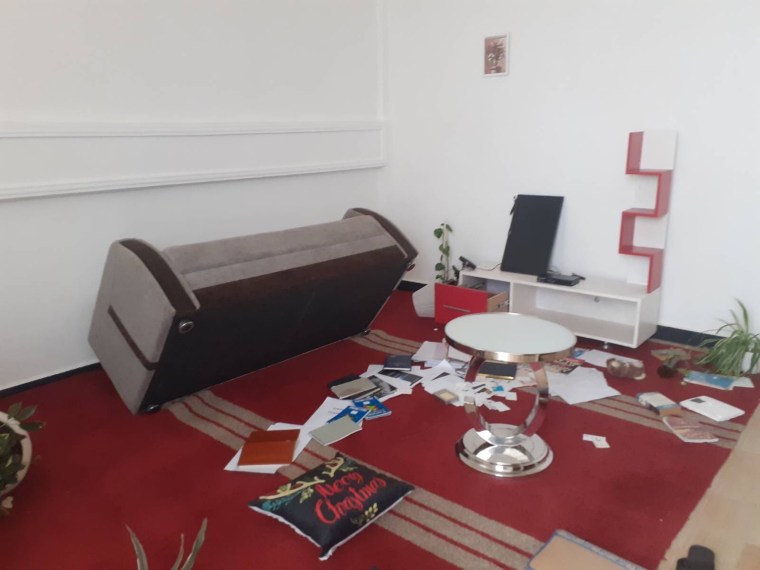On February 8, 2021, at about 10:30 a.m. in the Ethiopian capital of Addis Ababa, three armed men in plain clothes forced their way into the apartment of freelance reporter Lucy Kassa, searched her home, questioned her, and confiscated her reporting materials, according to the journalist, who spoke to CPJ via messaging app and email, and her account of the incident published in the Los Angeles Times.
The men knocked on Lucy’s door, shoved her to the floor when she opened it, and stayed in the apartment for about two hours, she said. During that time, they ransacked her house, overturning shelves, tables, and her bed, and asked her whether she had connections to the Tigray People’s Liberation Front, a political party that has been in armed conflict with the Ethiopian federal government since November.
The men also asked her about the source of photographs she had on her laptop from the conflict area in the northern state of Tigray, and then confiscated the laptop and a flash drive containing pictures allegedly showing evidence of Eritrean troops fighting in the Tigray conflict, according Lucy and her account in the Los Angeles Times. The men threatened to kill Lucy if she continued investigating the conflict, she told CPJ.
The men refused to identify themselves and did not present a court warrant for the raid, Lucy said.
Three days before the raid, Lucy had filed an exclusive report to the Los Angeles Times about the alleged gang rape of an ethnic Tigrayan woman by Eritrean soldiers. Lucy told CPJ that she believed the men who raided her home were aware of that story, which was not published until February 11, and said that she suspected officials had traced her sources in Tigray.
She said she believed they were intelligence agents due to the level of detail they knew about her work and their concern about coverage of the Tigray conflict.
Lucy told CPJ that she has covered the conflict in Tigray since it broke out last year, writing articles for international outlets including the Los Angeles Times, Al-Jazeera, and the Norwegian magazine Bistandsaktuelt.
In a February 10 statement published on the Ethiopia State of Emergency Factcheck Facebook page, established by the prime minister’s communications secretariat ostensibly to counter disinformation about the Tigray conflict, authorities did not comment on the raid on Lucy’s apartment, but did accuse her of lacking the necessary reporting permits issued by the Ethiopian Broadcasting Authority.
Lucy told CPJ that she grew more afraid for her safety following the release of that statement.
When CPJ emailed federal police spokesperson Jeylan Abdi for comment, he acknowledged receiving CPJ’s questions but did not respond to that email or to texts sent via messaging app. CPJ also emailed the prime minister’s communications secretariat for comment, but did not receive any reply.
Since November, CPJ has documented the detention of several journalists in connection to their coverage of the Tigray conflict or alleged links to the Tigray People’s Liberation Front. Last month, CPJ called for investigations into the killing of Dawit Kebede Araya, a state media journalist, in the Tigray capital of Mekelle.
